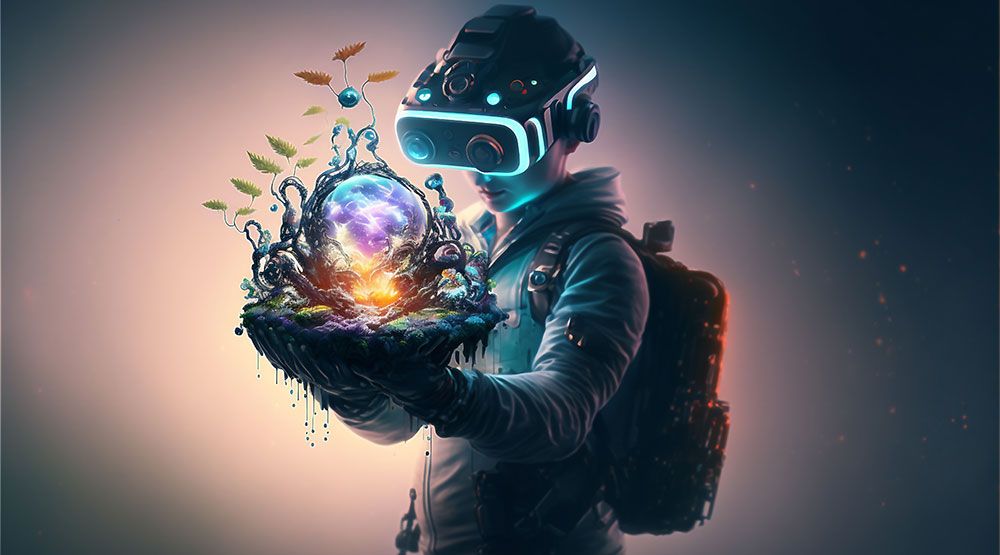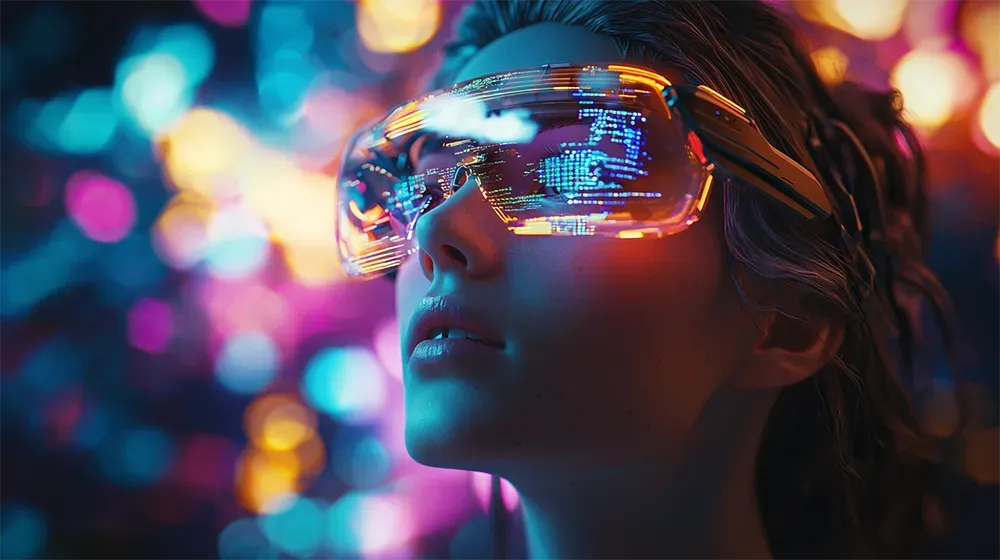The Convergence of AI and the Metaverse: A Futurist’s Perspective

The meteoric rise of artificial intelligence (AI) and the buzz surrounding the metaverse seemingly represent two of the most monumental technological forces of our time. As a futurist and keynote speaker staying on the pulse of technological disruption, I’m captivated by the vast implications of their continued progression and convergence.
In this piece, we’ll explore the integration of AI into the burgeoning metaverse, unpacking how these technologies complement and enhance one another. From virtual assistants to digital creators, let’s examine how AI is propelling the evolution of the metaverse and birthing novel experiences.
Powering Immersive Virtual Worlds
The metaverse represents an expansive network of persistent 3D virtual worlds focused on social connection. By integrating extended reality (XR) technologies like augmented reality (AR), virtual reality (VR), and mixed reality (MR), the metaverse aims to create expansive, shared virtual spaces.
As the foundation of the metaverse continues being built, AI emerges as the fuel enabling this next computing platform. The scalability and personalization required for the metaverse necessitate intelligent systems.
AI-Driven Graphics
To manifest the elaborate 3D digital worlds that define the metaverse, AI-synthesized media and intelligent rendering techniques are essential.
Using generative adversarial networks (GANs), AI can generate intricate 3D models, lifelike avatars, and convincing digital humans. These AI-created assets allow for boundless virtual environments, characters, and customization.
NVIDIA’s Omniverse platform harnesses AI to streamline graphics workflows. The platform’s Nucleus Cloud leverages deep learning for real-time photorealistic rendering, while Avatar Cloud utilizes AI to easily animate digital humans.
Natural Interactions
Multimodal AI that combines computer vision, natural language processing, and reinforcement learning will enable natural interactions in the metaverse.
Intelligent virtual assistants can deliver personalized recommendations and services. Voice and gesture recognition empower intuitive controls. Meanwhile, affective computing allows virtual characters to interpret and respond to human emotions.
Anthropic’s AI assistant Claudepresence demonstrates how large language models can maintain natural conversations. PostEra trained ClinGenius AI with doctors’ knowledge to serve as an accurate medical chatbot.
Such intelligent systems will be integral for user-friendly metaverse experiences.
Redefining Social Connection
A core promise of the metaverse is enhanced social presence, with spatial computing and XR technologies, aiming to replicate in-person interactions. Integrating AI stands to further augment social experiences and engagement.
Hyper-Personalized Avatars
AI algorithms allow users to craft detailed avatars that capture their likeness and personality. Computer vision, 3D scans, and AR filters can replicate facial features and expressions.
Meanwhile, machine learning models like Replicate can simulate voices, speaking styles, and intonations. This creates authentic social presence.
Ready Player Me utilizes AI to convert 2D selfies into animated 3D avatars. Pinscreen’s AI generates photorealistic AR avatars mimicking user emotions in real time. Such innovations enable unmatched representations.
Immersive Communication
Natural language capabilities allow AI agents to engage in meaningful conversations, fostering interactive communication in the metaverse.
Large language models like Anthropic’s Claude listen attentively, ask clarifying questions, and provide refreshingly humanlike exchanges.
Additionally, neuro-linguistic programming techniques enable AI characters to establish rapport by mirroring communication patterns. This facilitates immersive social connection.
Digital Companions
AI could even generate personalized companions in the metaverse. By learning users' interests, habits, and values over time, AI agents can become unique digital confidants.
Replika crafts bespoke AI friends by analyzing conversations to adapt accordingly. Similarly, artificial intimacy startups like Pana emote empathy while safeguarding user privacy.
As users spend more time in virtual worlds, customized AI companions provide consistent social enrichment.
Unlocking New Possibilities
Beyond realism and socialization, AI opens up expansive creative potential in the metaverse. Intelligent tools expand what’s possible, democratizing development.
Automated Asset Creation
Generative design algorithms automate 3D modeling and asset creation. For instance, Almost Human leverages AI to generate furniture and product designs.
Similarly, Meta’s Make-A-Scene platform applies AI to convert natural language prompts into 3D scenes. This streamlines development cycles.
Synthetic media generators like D-ID and Hour One AI produce lifelike virtual characters. And Stable Diffusion generates images from text descriptions.
Democratizing creativity expands possibilities in the metaverse. When basic assets can be instantly produced, more energy can be directed towards experiences.
Intuitive Worldbuilding
Procedural content generation via AI allows for expansive, detailed metaverse environments. Rather than handcrafting each asset, worlds can be intelligently constructed algorithmically.
This involves training AI on design principles and architecture. The AI then logically arranges elements while introducing variation.
By automating worldbuilding, creators are empowered to construct metaverse spaces bounded only by imagination.
The Next Frontier
As the metaverse comes online, the integration of AI propels its evolution by enabling elaborate virtual worlds, redefining social connection, and unlocking novel experiences.
From VR realism to compelling digital humans, AI symbiotically enhances the metaverse vision. Meanwhile, the data-rich metaverse environments further train intelligent algorithms.
This synergy between artificial and virtual intelligence constitutes the next frontier. As a pioneering futurist, I’m enthused by the possibilities this intersection unlocks. While future challenges remain, the convergence of these technologies promises to reshape society and push the limits of human imagination.





